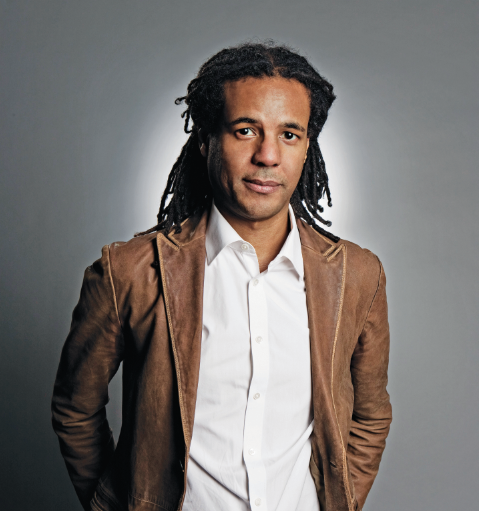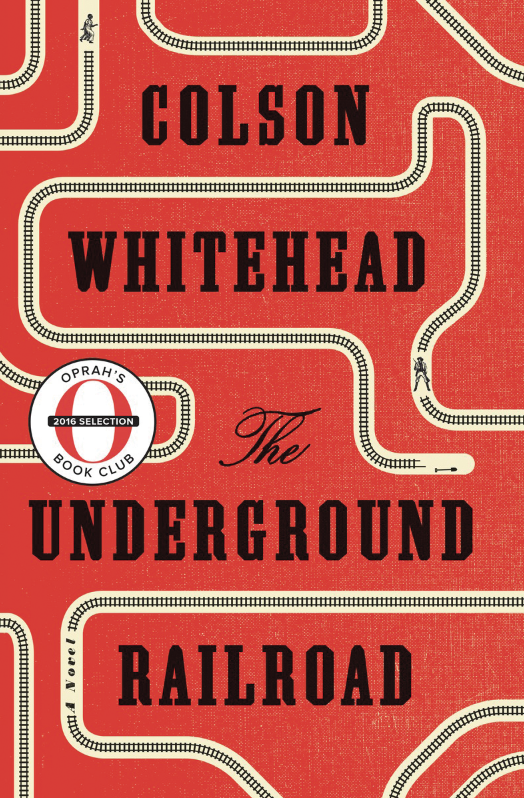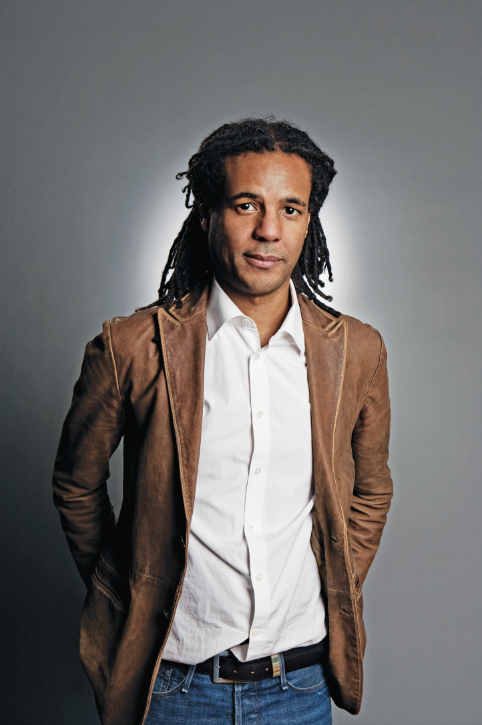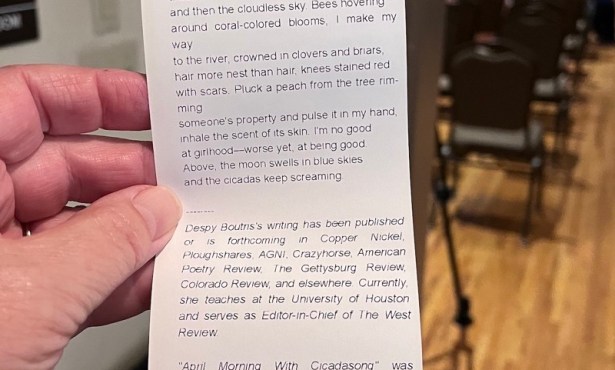Colson Whitehead’s ‘The Underground Railroad’
National Book Award Winner to Speak at UCSB

In 2016, Colson Whitehead’s The Underground Railroad won the National Book Award for Fiction and reached the top spot on the New York Times Best Sellers list, a rare achievement. What makes this feat even more remarkable is that Whitehead accomplished it with a challenging story that contains some of the most disturbing accounts of slavery ever printed.
Despite its horrific subject matter, The Underground Railroad conjures a vision of hope out of so much savagery and despair. Its heroine, Cora, more than survives; she escapes, and as she does so, she grows in depth and maturity until her wisdom and grace suffuse the book. Thanks to Cora, Whitehead’s much-noted central conceit of the Underground Railroad being a real subterranean train system gains a moral as well as an aesthetic gravity. It’s her human heart that gives an otherwise serious work of historical fiction permission to embrace this one wild element of fantasy.

The book begins in Georgia, where Cora fights for survival in the competitive hell of a cotton plantation. Together with Caesar, who introduces her to the railroad, Cora runs away and makes it to Charleston, where things seem better at first. In Charleston, Cora samples some of the benefits of freedom, but in a world where fugitive slaves are hunted relentlessly, and even seemingly benign medical institutions turn out to be engaged in eugenic experiments, nowhere is safe for long. Soon Cora is back riding the underground rails again to other places and to face new dangers.
In a recent conversation with The Santa Barbara Independent, Whitehead reflected on the timing of the novel, on why he chose to employ the fantasy of the real trains, and on what went into the making of Cora’s nemesis, the implacable slave catcher Arnold Ridgeway.
Why tell this story now? I suppose that answer varies from place to place. Somewhere that the story of slavery is well-known, it will have one kind of impact, and in a place where it is not, another. If you haven’t thought about slavery recently, then reading the book could be a reminder. The subject of slavery was interesting to me in part because I remember watching Roots with my parents when I was 8, and now I am seeing what this story means to me as a novelist in my forties.
What made you decide on the device of making the railroad real? That gave me freedom in how I organized the book. The episodic structure allowed me to have a big cast. A more realistic historical novel would have had to stay put in one place; this way Cora could move around and have more experiences. For example, I could create someone like Ethel [a conflicted figure in the terrifying North Carolina section] and show what happens to her as a woman living in the 1820s.

What were some of the things you read to prepare? I read the WPA [Work Projects Administration] slave interviews in the Library of Congress for the Georgia section. For Ridgeway and his slave-catching gang, I had Eric Foner’s Gateway to Freedom: The Hidden History of the Underground Railroad. That actually came out as I was writing the book, and I was able to get a much better idea from it of this whole underworld of corrupt procedure that Ridgeway occupies and of these legal battles between the slave catchers and the abolitionists.
Let’s talk about Ridgeway. He scared me. How did you come up with such a disturbing and original villain? Ridgeway came last. He didn’t show up until I was almost two-thirds finished with writing the book. He needed to be a formidable antagonist for Cora, and he had to be at least somewhat charismatic. There were also certain ideas that I wanted to express in his character — Manifest Destiny, the colonial attitude. There was a kind of Cold War before the Civil War that was fought between the abolitionists and the slavers, and that’s a lot of what the Underground Railroad was.
What frightened me most was the sense of nihilism that allows someone to decide that certain other people are just things. It is a kind of nihilism — that’s right. And to some extent, it’s still with us. I published the book before the election, and how I feel about it has changed now. You know President Trump idolizes Andrew Jackson, and that’s the kind of American attitude that Ridgeway was created to reflect.
411 UCSB Arts & Lectures presents Colson Whitehead at UCSB’s Campbell Hall on Wednesday, April 5, at 7:30 p.m. The Underground Railroad was the Winter 2017 Book Selection of the Lynda Weinman and Bruce Heavin Thematic Learning Initiative, which provides new books free of charge to members of the community. Call (805) 893-3535 or visit artsandlectures.sa.ucsb.edu.



